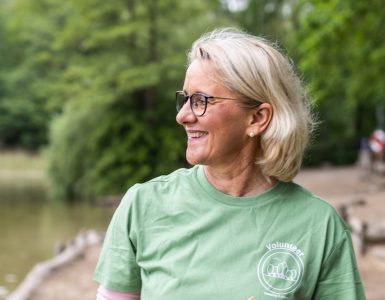As you get older, your body may begin to slow down. Maybe you can’t move as quickly as before, or perhaps it’s tougher to carry the grocery bags from the car to your house. According to the National Institute on Aging, your memory may also begin to slow down as you age. To keep your memory strong and fit, it’s important for you to give it some good exercise. In recognition of Healthy Aging Month, Health Advocate offers the following “memory fitness” ideas:
- Take steps toward better health. According to the Radiological Society of North America, walking may slow cognitive decline in healthy adults as well as in adults with mild cognitive impairment and Alzheimer’s disease. Plus a recent study in the Proceedings of the National Academy of Sciences shows that adults who walked for 40 minutes three times a week for one year showed brain growth in the hippocampus, an area of the brain associated with spatial memory.
- Keep life interesting. Dealing with new situations can encourage the brain to process things better, so find ways to keep your brain stimulated. One easy way to do this is by adding something new to your routine.Or consider trying out a new activity that is known to boost brain power. For example, a recent study in Neurology found that exercising your “word skills” may help protect against memory loss…so break out the crossword puzzles or Scrabble board!
- Keep calm and carry on. Chronic stress floods the brain with cortisol, which leads to impaired memory. Harvard University researchers have found that a technique called mindfulness-based stress reduction can ease the effects of stress on the brain. This form of meditation, which involves focusing one’s attention on sensations, feelings and state of mind, can reduce harmful stress hormones.
- Eat more greens. Research suggests that older people who eat the most fruits and leafy-green vegetables may experience a slower rate of cognitive decline and be at lower risk for dementia.
- Be a social butterfly. Social interaction helps ward off depression and stress, both of which can contribute to memory loss. Create opportunities to get together with loved ones and friends, especially if you live alone. Also consider joining a senior club at a local community center to meet new people.
- Stay organized. You are more likely to forget things if your home is cluttered with notes. Try jotting down tasks, appointments and other events in a special notebook, calendar or electronic device.
Keeping your brain busy can not only help your memory stay young, but it can help keep you feeling happier and well-entertained. If you are a Health Advocate member, we can help you with your concerns regarding aging; whether you’re seeking assistance for yourself or are a caregiver for elderly parents, we’ve got you covered. Call us for help locating a physician, arranging transportation to doctor’s appointments, understanding health benefits, finding eldercare services, and more. If you are a member of Health Advocate, your spouse, dependent children, parents and parents-in-law are also eligible to use our services. Not a Health Advocate member? Consider addressing your aging and memory-related concerns with your family doctor, who may be able to provide you with advice and resources.



